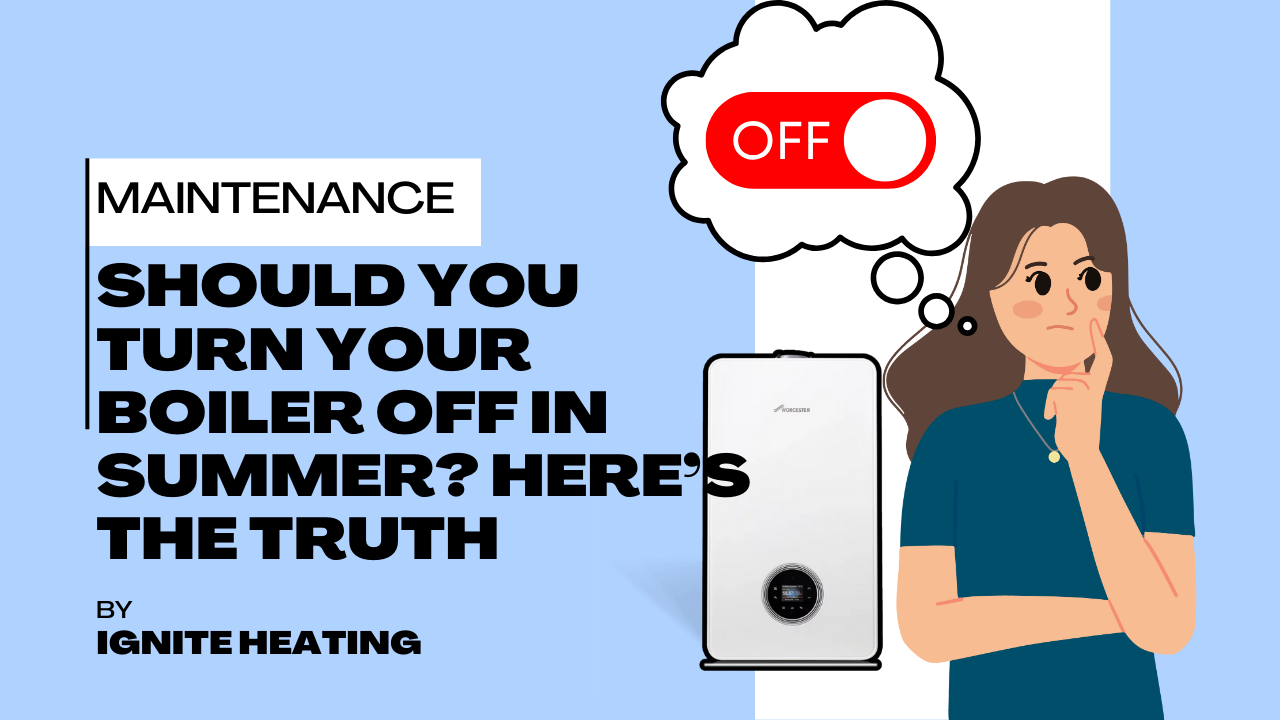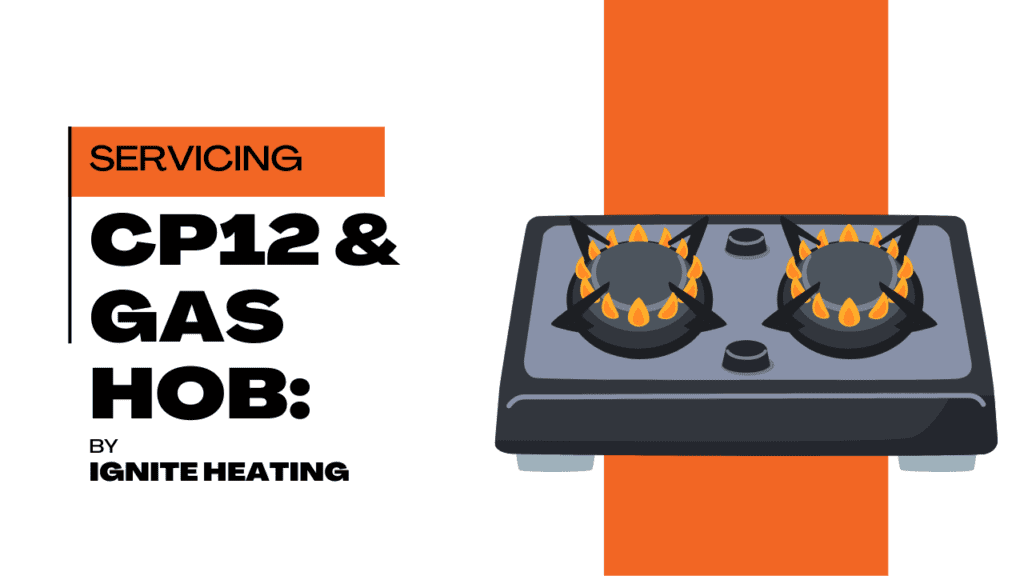
Should You Turn Your Boiler Off in Summer? Here’s the Truth.
Search Should You Turn Your Boiler Off in Summer? Here’s the Truth. Summer’s here finally. The sun’s shining (most days),

For tenanted properties in the UK, ensuring that all gas appliances comply with legal safety standards is not just best practice—it’s a legal necessity. A CP12 certificate is a crucial document that confirms gas appliances, including gas hobs, have been inspected and meet the stringent safety requirements mandated by UK law. This certification provides landlords and tenants with peace of mind, knowing that the appliances have been rigorously tested and are safe for everyday use. In this blog, we’ll break down what a CP12 certificate is, dive into the rigorous tests that a gas hob undergoes, and discuss what it means if a unit fails to meet these critical standards.
A CP12 certificate is a mandatory requirement for landlords in the UK, ensuring that all gas appliances within a rental property meet strict safety standards. Under the Gas Safety (Installation and Use) Regulations, it is the landlord’s legal responsibility to have each gas appliance, including gas hobs, inspected annually by a qualified Gas Safe registered engineer. The CP12 certificate is the formal documentation proving that these inspections have been carried out, confirming that the appliance is safe, compliant, and fit for use by tenants.
This certification process is essential not only for tenant safety but also for protecting landlords from potential legal and financial repercussions. Here’s why the CP12 is so critical:
In summary, the CP12 is not merely a certificate but a critical element of gas safety management in rental properties. It underscores the legal obligation of landlords to perform regular, thorough inspections, ensuring that every gas appliance operates safely and efficiently for the benefit of both tenants and property owners.
Gas hobs are massively used all over the UK, but their operation involves risks if not properly controlled. To minimize hazards like gas leaks, erratic flames, or malfunctioning safety devices, manufacturers and safety bodies require that gas hobs undergo extensive testing. These tests are designed to simulate real-world operating conditions, ensuring that every component—from the gas valve to the ignition system—functions reliably over time.
There are testing protocols that are part of the broader framework of industry standards that all gas appliances must meet before they are approved for use. For landlords and homeowners alike, these tests are not just regulatory hoops to jump through—they provide essential assurance that the gas hob is performing safely over its lifetime. In rental properties, where tenant safety is paramount and legal obligations are strict, ensuring that each gas appliance has passed these tests is a vital part of responsible property management.
In summary, testing a gas hob is about much more than just compliance; it’s about proactively managing risks to protect lives and property. Through comprehensive testing that simulates real-world conditions, every component—from the gas valve to the ignition system—is scrutinized to ensure reliable and safe operation. This rigorous process helps prevent potentially dangerous malfunctions, ultimately ensuring that your gas hob remains a safe and dependable part of your home.
Several critical tests are performed on a gas hob as part of the CP12 certification process. Here are some of the main areas evaluated:
Gas Pressure and Leak Test
This test ensures that all connections and joints in the hob’s gas system are secure. A gas leak, even a minor one, can lead to inefficient combustion or, in worst-case scenarios, create a dangerous buildup of gas. The pressure test verifies that the gas flow is within the safe and optimal range, confirming the hob’s integrity.
Ignition System Test
Reliable ignition is crucial. The test evaluates the spark generation and ensures that the ignition system consistently produces a spark capable of lighting the gas. This test helps prevent issues such as delayed ignition, which can lead to gas accumulation before ignition occurs.
Flame Stability and Performance Test
The flame test checks that the gas hob produces a stable and efficient flame. A well-regulated flame is essential not only for effective cooking but also for ensuring that the appliance doesn’t produce excessive carbon monoxide or other harmful by-products. The test measures flame consistency, shape, and color to confirm that combustion is occurring correctly.
Thermal Performance and Safety Cut-Offs
Overheating is a potential hazard with any gas appliance. This part of the testing process examines the hob’s thermal performance and ensures that built-in safety mechanisms, such as automatic shut-off devices, function as intended. These features are critical for preventing accidents and gas leaks in the event of a malfunction.
Material Durability and Structural Integrity
Finally, the materials used in the gas hob must withstand the rigors of regular use. Durability tests assess the resistance of components to wear, corrosion, and heat over time. A gas hob that meets CP12 standards has proven that it can maintain its performance and safety features under prolonged usage.
Passing the CP12 test means that the gas hob has demonstrated its ability to operate safely and efficiently under controlled conditions. During testing:
When a gas hob meets these standards, it reassures consumers that the appliance is not only efficient but also safe for daily use.
Failing to pass the CP12 tests is a serious matter that signals the gas hob may pose significant risks. When a gas hob does not meet the CP12 standards, it indicates that one or more critical safety or performance parameters have not been met. Here’s an expanded look at what this failure entails:
Immediate Danger:
A failed test often uncovers gas leaks. Even small leaks can allow gas to accumulate in an enclosed space, increasing the risk of an explosion or fire.
Long-Term Risk:
Continuous leaks can lead to chronic exposure to low levels of gas, which over time may affect indoor air quality and increase health risks for occupants.
Incomplete Combustion:
If the ignition system is unreliable or the flame is unstable, the appliance might not combust gas completely. This incomplete combustion can result in the production of harmful by-products, such as carbon monoxide—a colorless, odorless gas that is dangerous if inhaled.
Delayed Response:
An inefficient ignition system might cause delays in lighting the gas, leading to periods where gas accumulates before ignition occurs. This delay can exacerbate the risk of gas build-up and potential ignition mishaps.
Non-Responsive Cut-Offs:
Modern gas hobs are equipped with safety cut-off devices designed to shut down the appliance in the event of overheating or malfunction. A failure in these safety mechanisms means that the hob might continue operating under unsafe conditions, dramatically increasing the risk of accidents.
Compromised Emergency Functions:
In the event of a sudden malfunction, such as a rapid temperature spike or a sudden gas surge, faulty safety features may not activate in time to prevent a hazardous situation.
Immediate Non-Use:
A gas hob that fails the CP12 certification should not be installed or used. Continued operation of an uncertified appliance not only endangers tenants but also exposes landlords and property managers to legal liabilities.
Mandatory Repairs or Replacement:
The failed components must be promptly repaired or replaced by a qualified Gas Safe registered engineer. Until the issues are resolved and the appliance passes subsequent inspections, it should remain out of service.
Legal and Financial Repercussions:
For landlords, using a gas appliance that hasn’t passed the CP12 test is not only a breach of legal duty under UK gas safety regulations but also a potential cause for fines, legal action, or insurance complications. Ensuring compliance is critical both for tenant safety and for meeting legal responsibilities.
In summary, a gas hob failing the CP12 certification is a clear indicator that the appliance may have serious safety and performance issues. Addressing these problems immediately is essential to protect lives, prevent property damage, and maintain compliance with UK gas safety laws.
The CP12 test plays a crucial role in ensuring that gas hobs meet stringent safety and performance standards. By undergoing a series of detailed tests—from gas leak checks to thermal performance evaluations—these appliances are rigorously vetted for safe use. For consumers, a CP12-certified gas hob offers peace of mind, knowing that it adheres to high safety standards. Conversely, a failure in any of these tests serves as an important warning sign, emphasizing the need for immediate corrective action to prevent potential hazards.
At Ignite Heating, safety is paramount. Whether you’re a homeowner, a service technician, or simply interested in the mechanics of gas appliances, understanding the CP12 certification can help you make informed decisions about the products you use and trust in your home.

Search Should You Turn Your Boiler Off in Summer? Here’s the Truth. Summer’s here finally. The sun’s shining (most days),

Search Should I Upgrade My Central Heating System Before Winter? Winter in the UK can be brutal, with freezing mornings,
© 2024 Ignite Heating. All rights reserved